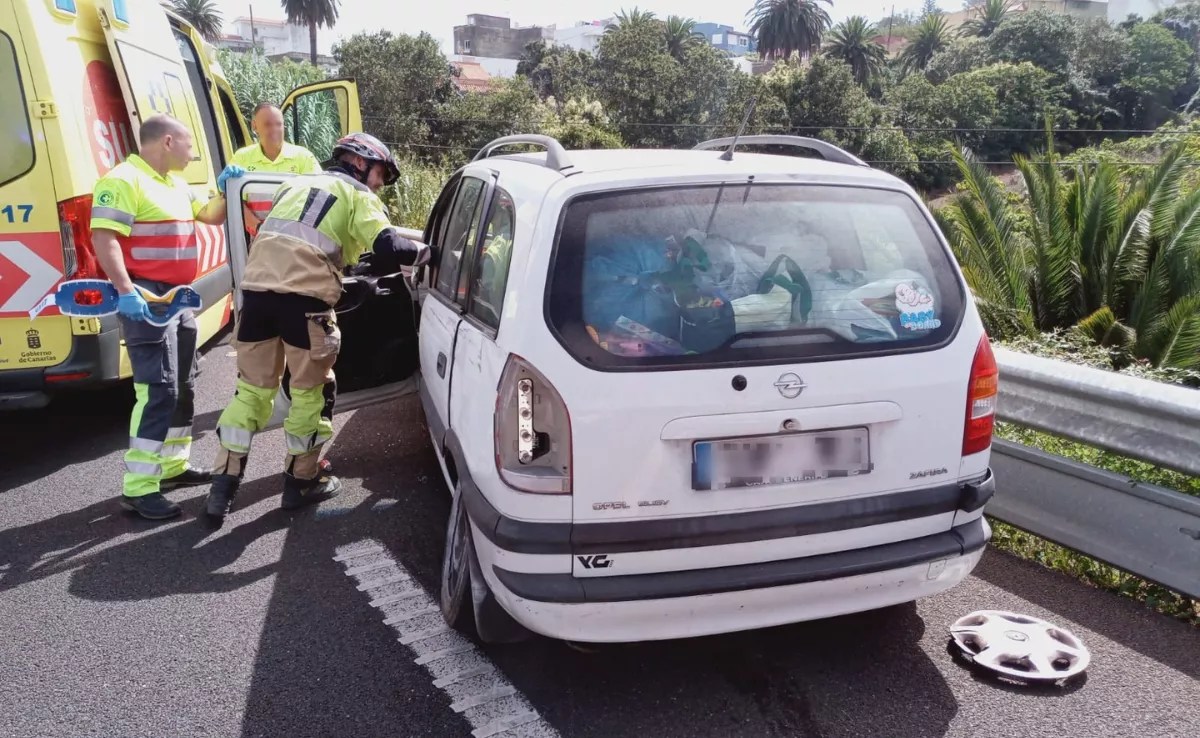In April of last year, the Tenerife Council ratified a motion that authorised the establishment of new university shuttle services from the north and south of the island to the University of La Laguna (ULL). After months of diligent effort, the president of the Cabildo, Rosa Dávila, launched two new routes: Line 605 and particularly line 611, which connects Costa Adeje with the university campus—a much-anticipated service for students residing in the south.
As reported in the DIARY OF NOTICES, David Bonalde and Andrea Carrero were the trailblazers of this initiative. While their names do not feature in the approved motion, both were instrumental in bringing the project to fruition. Initially, they gathered physical signatures across various campuses of the University of La Laguna and via their initiative’s website, Propuesta de Línea de Guagua. Thanks to community support and the promotion of their proposal, it eventually came to life, showcasing the strength of collective action in addressing social issues.
At the official opening of line 611 yesterday, both young individuals had the opportunity to experience the new route and shared their joy at witnessing the success of their hard work. “We are absolutely thrilled,” stated David Bonalde, who, alongside Andrea, began the signature collection among ULL students. “At the outset, we only had a few thousand signatures, never fathoming that our proposal would garner such extensive public backing, culminating in this line becoming a reality.”
THANKS TO THE COUNSELLOR
During the inauguration ceremony, both expressed their heartfelt gratitude to Eulalia García, the Councillor for Mobility of the Cabildo, for her commitment to advancing the initiative. “From the onset, she embraced the proposal and expedited the process,” they mentioned.
Moreover, the young advocates emphasised the necessity of continual service enhancements. “We hope that both TITSA and the Cabildo heed user feedback. We have received suggestions for more schedules or the transformation of the line into a regular service with higher capacity, benefiting not just students but also the island’s workforce,” Bonalde remarked.
Andrea and David underscored the positive implications this line will have on numerous students in the southern region of the island. “We take pride in knowing that, thanks to this shuttle, many will now have the means to pursue higher education. Those unable to purchase a flat will have access to their studies, and others will convert the time spent on lengthy commutes into leisure activities,” they noted. Both admitted to having personally battled transportation challenges during their time at university. “We are incredibly pleased that future generations will have improved access to education,” they concluded.
CITIZEN PROPOSALS
In conclusion, the young students urged institutions to pay greater attention to citizen suggestions. “It is crucial to motivate the public to propose solutions that serve all residents of the island,” they insisted, highlighting the importance of community involvement in developing initiatives that enhance living standards.
Thus, line 611 represents not merely a new transport route, but the product of the determination of two students who, through a well-founded proposal, succeeded in improving transport and living conditions for their peers and the local community in southern Tenerife, significantly reducing travel times to the university. This case exemplifies the significance of civic participation and the necessity of presenting robust proposals to institutions. Rather than merely identifying an issue, David Bonalde and Andrea Carrero formulated a project backed by data and community support, demonstrating that it is feasible to influence public decisions when one operates in an organised and constructive way.
















